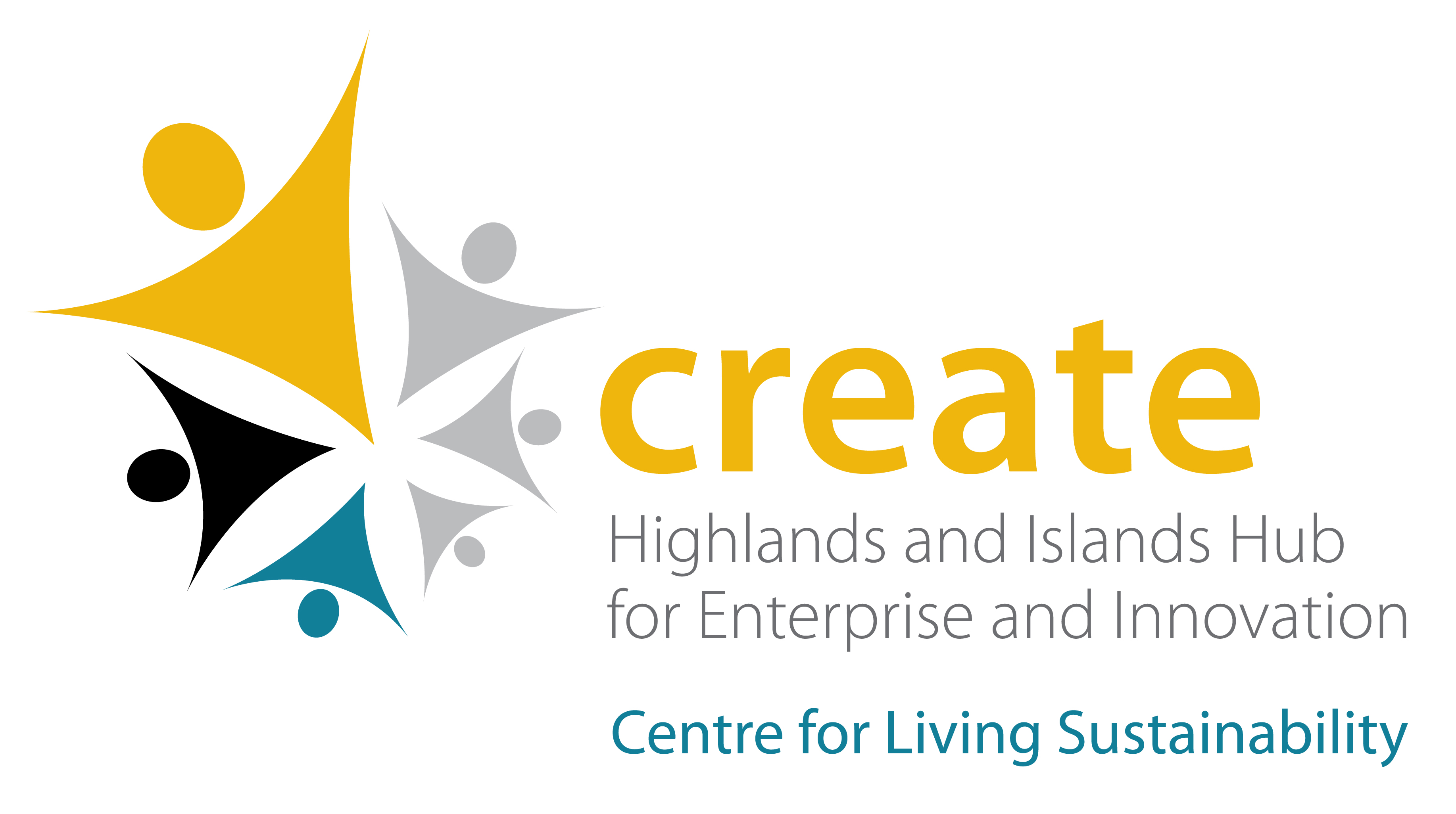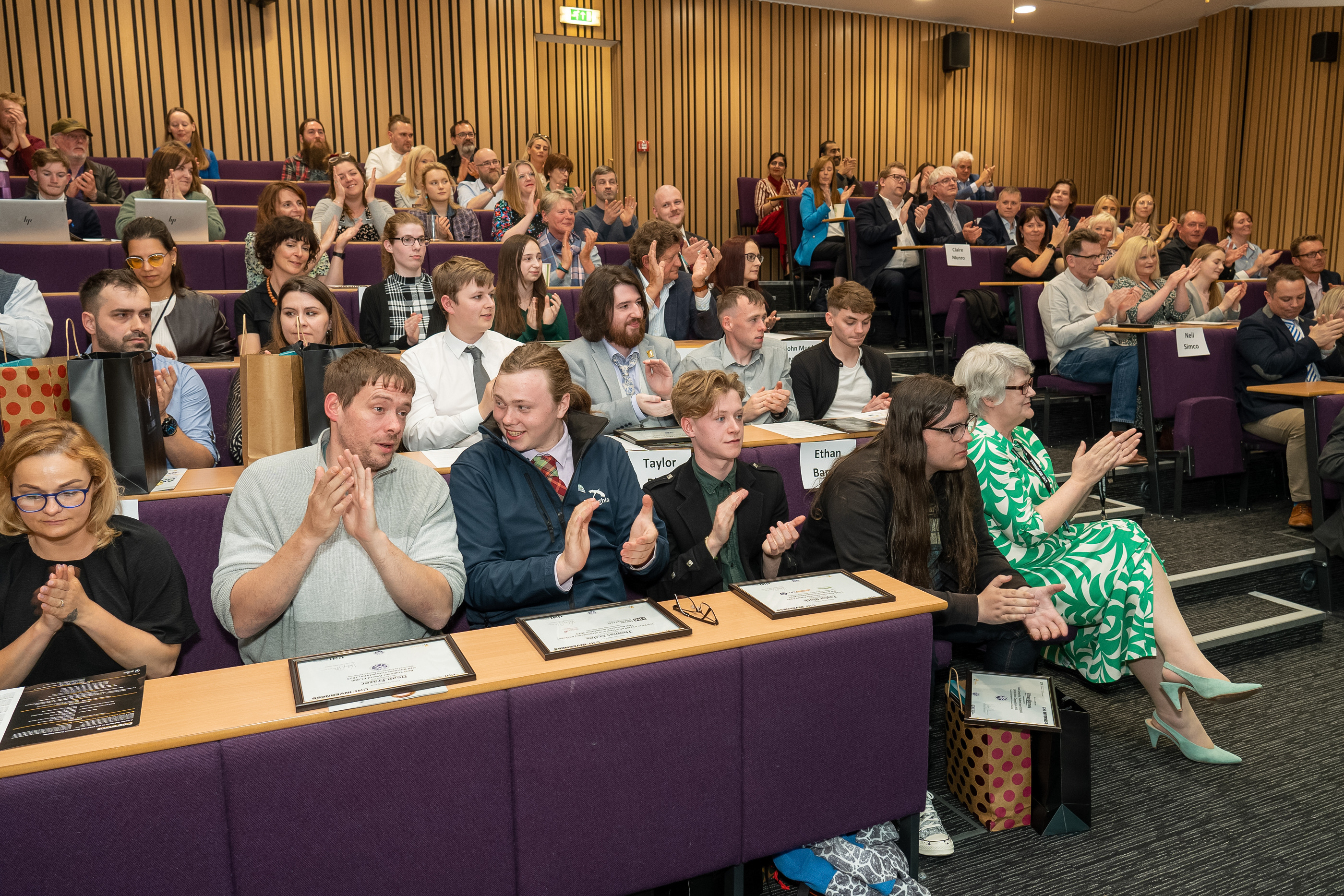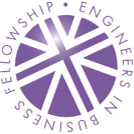Business Competition – 2023
Back to Competitions | The UHI Business Competition is an annual flagship event run by CREATE, the Highlands and Islands hub for Enterprise and Innovation based in the Centre for Living Sustainability at UHI Inverness. Entrepreneurship is vital to our local and national economy and this competition plays a key role in inspiring, encouraging and supporting promising entrepreneurs by allowing them to develop their business ideas. Since the competition was established, entrants have used it as a platform to share their ideas, receive support and launch their entrepreneurial careers. |


First Prize Winner: Best Culture and Environment Business Award
Engineering alumnus and STEM co-ordinator, Jack Marley McIntyre, was awarded a £1,000 Engineers in Business prize for his innovation Rose Street Round House. Jack is pictured with his prototype.
The Rose Street Roundhouse (RSR) is a design concept for a new and innovative kind of civic venue. The award funding will be utilised to develop a social enterprise to support the R&D; promotion; project management and eventual site management of a successful RSR venue.
Initially, the social enterprise aims to develop a concept venue which incorporates developments in green innovation; sustainable materials; occupancy energy generation (powering systems through crowd movement); smart grid tech (power generation and adaptive storage by venue generation systems) and incorporating technological spectacle to show green technology and inspire those who visit the RSR that renewables/sustainable materials are effective and amazing! The RSR will be designed with civic good in mind; as a nexus for creativity and public engagement in the arts and as a display of the ‘Best of the Highlands’ – from facilitating culture to highlighting local developments in green technology and sustainability.
The building’s theoretical design will be a Pentadecagon with each side (external façade) being supported by Cross Laminated Timber panelling and supports; with wood supplied locally. The physical construction will be supported with K-Briq (innovative Scottish built environment technology); which can lend a sustainable multi-colour aesthetic to internal parts of the building. It will consist of three floors with an inner cylinder and outer cylinder; the outer area will be a promenade in a helix formation with facilities (the third floor being a makerspace for artists; writers; and designers) and the inner cylinder will be the performing arts venue.

Second Prize Winner - Best Engineeer Award
Dean Frazer, who is studying a BEng(H) in Electrical and Electronic Engineering at UHI North Highland, won a £1,000 Engineers in Business Prize for his Green Power Factor Solutions Rapid SCADA & Arduino for Autonomous, Scalable and Economical Power Factor Correction of Inductive Loads in Electrical Systems. Dean was presented with his prize by Professor Neil Simco, Deputy Principal Academic and Research at UHI
Power factor is the system’s efficiency. Inductive loads reduce the power factor increasing power consumption and current used, increasing bills and causing potential damage to cables and equipment. The power factor can be corrected by adding capacitance into the system via capacitor switching.
A low-cost power factor correction device will monitor the system’s electrical quantities using analogue signal conditioning and Arduino microcontroller. Voltage, current, power factor and power values will be sent to Rapid SCADA where the user can monitor the values via real-time data and graphs over time. If the power factor drops below the pre-defined level, the Arduino will switch capacitors via relays to raise the power factor, reducing the power used. An event log will record all changes for system analysis to further improve efficiency.
Capacitors will be calculated for size and Arduino-Rapid SCADA communication method will be chosen on a system-by-system basis to meet the user’s needs. Communication can be wireless. Access to Rapid SCADA can be via PC and mobile device; layout and operation can be configured to the user’s preference. Programming and system analysis can be done remotely on a rolling basis for the user to further improve efficiency.
The product can be applied to any electrical installation that uses inductive equipment; or to single machines to improve the power factor; save energy and improve safety. The market is dominated by large companies that offer solutions at high cost. This device can offer the solution at a much lower cost with remote support.

Third prize Winner: Best Computing Student Award
Ethan Barnes, who is studying an HNC in Computing at UHI Perth, was awarded a £1,000 Engineers in Buiness Prize founded Actuating Lemons. Ethan was presented with his prize by Professor Neil Simco, Deputy Principal Academic and Research at UHI
Actuating Lemons intends to release games created with Open-Source technologies and itself releases the code used for Games, Engines and Libraries (small portions of code usable by many programs) permissively for purposes of educating and allowing modifications.
Educational institutions have a hard time finding good, real-world examples of Video Game code and concepts that are permissive enough to use. This company would produce such material for anyone, everywhere.
The code being available would not hinder sales of the games which would be released on store platforms such as Steam or Itch.io. There are other such projects out there to create friendly and inviting tutorial projects for games, however, there are very few real-world, full games that are open-source and well documented.
Positive feedback
The UHI partnership has a key role to play in encouraging and enabling environmentally and socially sound entrepreneurship. The purpose of our business competition is to foster an innovative and resourceful mindset that enables people to achieve their potential and realise their ideas.
The Engineers in Business Prize Fund encourages entries from our engineering and computing students and, in turn, changes people’s lives by providing them with the confidence and support to start their own businesses.
Professor Vicky Johnson
Director of the Centre for Living Sustainability
University of the Highlands and Islands
